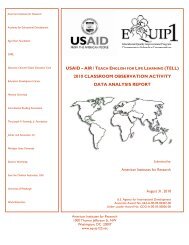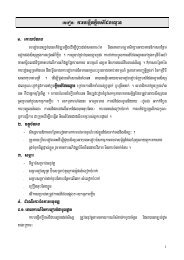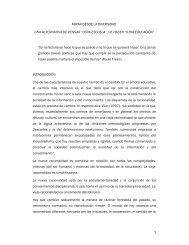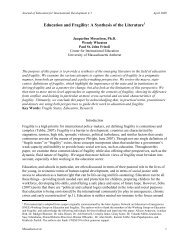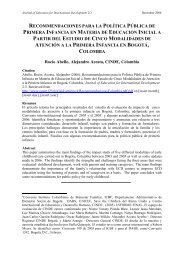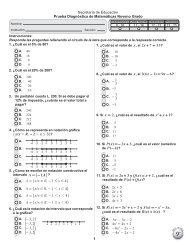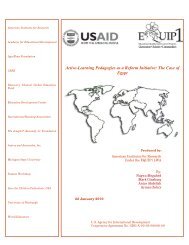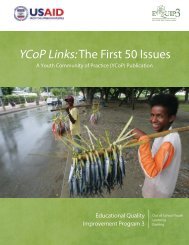The Power of Persistence: Education System ... - EQUIP123.net
The Power of Persistence: Education System ... - EQUIP123.net
The Power of Persistence: Education System ... - EQUIP123.net
Create successful ePaper yourself
Turn your PDF publications into a flip-book with our unique Google optimized e-Paper software.
militant groups (at least until 1997), but also faced a growing political challenge<br />
by individual members <strong>of</strong> the Muslim Brotherhood who served as candidates<br />
or voted for these candidates in elections for the People’s Assembly. Thus, while<br />
some limited moves toward decentralization and community participation in the<br />
1990s were framed in terms “democratization” and improving quality, central<br />
authorities referenced “national security” in explaining their ambivalence toward<br />
and hesitation in implementation <strong>of</strong> reforms to education, and their direct<br />
actions to limit local initiative, (i.e. purging <strong>of</strong> educators and curricular materials,<br />
enacting a school uniform law).<br />
Interactions across Dimensions<br />
Stakeholder participation and success in successful pilot interventions, and<br />
subsequent inclusion <strong>of</strong> key actors into positions <strong>of</strong> power, encouraged the<br />
development <strong>of</strong> consensus support for decentralization, as well as other reform<br />
activities. During the 1990s, successful pilot projects, resource support from<br />
multilateral agencies, and Egyptian MOE engagement in EFA activities nurtured<br />
experimentation with community participation and decentralization.<br />
<strong>The</strong> Egyptian government and Islamist militants reaching a non-aggression<br />
pact after the attack on tourists in Luxor in 1997 seems to be one <strong>of</strong> the major<br />
explanations <strong>of</strong> the take-<strong>of</strong>f in education reform efforts in governance and<br />
management reforms such as decentralization and community participation.<br />
Subsequent to the non-aggression pact, the ruling National Democratic Party and<br />
the Egyptian government promoted reforms in order to enhance their legitimacy<br />
within communities that had previously been less well served and less involved.<br />
At the same time, the struggle for political control in Egypt continued, with<br />
Muslim Brotherhood supporters achieving a sizeable minority in the People’s<br />
Assembly in 2006.<br />
During the period studied, increasing domestic discontent with the quality<br />
and outcomes <strong>of</strong> education increased pressure for reforms that would provide<br />
Egyptian families and youth with greater opportunities for a quality education.<br />
Importantly, providing “relevant” and “needed” educational and other social<br />
services to communities as part <strong>of</strong> a strategy to weaken the “threat” <strong>of</strong> Muslim<br />
Brotherhood (whose base was built through provision <strong>of</strong> such services) also<br />
resonated with multilateral and bilateral development agencies.<br />
58<br />
SECTION 2: lESSONS fROM COUNTRY CASE STUdIES



